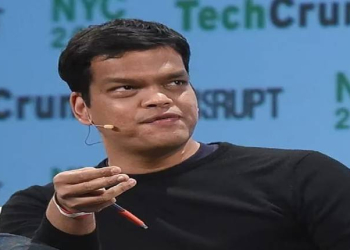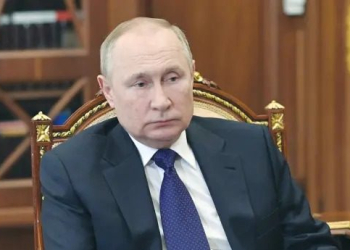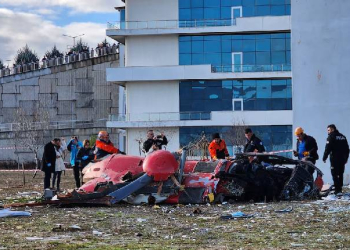London: With less than 24 hours to go before balloting begins in the first round of the French presidential election on 10 April, incumbent Emmanuel Macron, seeking a second term, was scrambling to unite voters against the challenge he is facing from the far-right.
The threat to Macron has arisen from Marine Le Pen of the National Front narrowing the gap between them in opinion polls. The former has thus been frantically endeavouring to resurrect the republican front. The process will inevitably go to a second round of voting on April 24 to decide the winner. In his only electoral rally in the campaign on April 2, Macron appealed to “all those, from social democracy to Gaullism, including the ecologists, who have not yet joined us, to do so”, the Le Monde newspaper reported.
An opinion poll published by BFM TV on Thursday, quoted by Reuters, gave Macron 26 per cent support to Le Pen’s 25 per cent in the first round in which there are 12 contestants altogether. The top two out of the dozen will proceed to a direct face-off in a second round of voting on April 24. It’s Macron’s hope and expectation that most of the other votes will transfer to him in the decisive phase.
On Friday, the President, no-holds-barred, said: “She (Le Pen) lies to the people.”
He added the far-right was about “rejection of the (French) Republic”, “anti-Semitism” and “xenophobia”. Earlier he had warned against taking Le Pen’s extremism lightly. “I hear that she is far right less often. 20 years ago, the media would say ‘it’s terrible’.”
Five years ago, Macron, a pro-European Union centrist, quite remarkably created a winning movement and political party En Marche within months to triumphantly occupy the Elysee Palace. He, though, refused to engage in public debates with the other candidates this time. In this vacuum, Le Pen emerged as apparently his main opponent. Now, that the President’s camp perceives one should not take matters for granted, they have launched a last minute offensive. Le Monde commented, “some in the majority see this strategy of rediabolisation as a tired attempt to reactivate the ‘old Pavlovian responses’ against the far right.
The other candidates in the election include Eric Zemmour, a former journalist, TV commentator and best-selling author with hard anti-Islam and anti-immigration views, Valerie Pecresse of the right-of-centre Republicans, known as Gaullists after its founder Charles de Gaulle, and Anne Hidalgo, a former mayor of Paris, of the Socialist Party, which is a shadow of its erstwhile self.
Zemmour has sounded so extreme in his stance in course of electioneering, that this has made Le Pen look a moderate, thereby persuading a section of the traditional right to veer towards her. Her poll numbers suggest the biggest support ever in France nationally for a far right nominee.
For the Indian government, Macron is a familiar figure, while Le Pen is an unknown entity, but whose rhetoric against non-whites over the years has not been particularly friendly. The sitting President also represents continuity. He was a minister in the socialist President Francoise Hollande’s government, which was awarded the lucrative Rafale multi-role combat aircraft contract by Narendra Modi in 2015. With this deal now being scrutinised by a Parisian prosecutor, Macron has a stake in fighting any averse findings, which Le Pen would not.
(IANS)




















